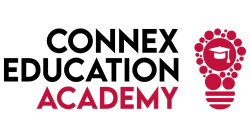5 Tips to Improve Your Lesson Planning
Have you ever found yourself staring at a blank page or grid, wondering how to create the perfect lesson plan?
You’re not alone! Whether you’re a seasoned educator or just starting out, lesson planning can sometimes feel like a daunting task. But fear not, dear teachers—it’s time to take a fresh look at this essential skill. In this blog, we’ll explore how to become a true master of lesson planning, making the process not only more efficient but also more enjoyable.
So, grab a cuppa, get comfy, and let’s dive into the art of creating engaging, effective lessons that will have your learners hanging on your every word.
Lesson planning core concepts
Lesson planning and curriculum development often get a bad rap, lumped in with other time-consuming teaching tasks. Many teachers spend countless hours going to great effort designing activities without addressing students’ actual learning needs. However, when done right, lesson planning can be simple, exciting, and even enjoyable, especially when incorporating effective instructional strategies.
The goal of lesson planning is to make a teacher’s life easier, not harder. Effective planning leads to better use of lesson time, benefiting both teachers and students. Whether creating a formal plan for observation or quick notes in a planner, understanding the principles of planning is key to minimising effort and maximising lesson quality.
Focusing on students learning rather than just the activities ensures that the time spent in class is conducive to meaningful educational outcomes.
So, what are the essential factors for simplifying our planning process and preparing lessons students will love? Effective planning is crucial for enhancing learning outcomes, and focusing on substantial, needs-based planning can significantly impact teaching effectiveness.
1. Work backwards - Start with the big picture
Planning lessons is difficult especially if you are a new teacher. Our advice is to look at the big picture and educational goals when planning individual lessons and ask yourself the following questions:
What is the purpose of your lesson?
What are the learning objectives for this single lesson?
Why do the students need to learn what you are teaching them today?
How are the tasks they are completing contributing to their progress?
What are the essential questions students need to learn from the curriculum?
Start with your end goals in mind: where do you want your students to be? Working backwards from this point ensures each lesson takes them one step closer to their destination. Understanding the learning process helps structure lessons effectively, ensuring instructional strategies and activities are interconnected and acknowledge individual student journeys.
This approach influences the structuring of lessons, creating a cohesive flow of knowledge known as the learning sequence.
That’s why lesson aims, objectives, and outcomes are crucial. A clear understanding of these (and the differences between them) ensures every planned activity works towards your goals. When you’re certain of why your lesson content is important, you can convey this to your students, resulting in learners who are fully invested in their time in your classroom, ensuring that instructional strategies are aligned with these goals.
2. Know your audience when creating your lesson plans
Having a thorough knowledge of your students may be the most important aspect of any planning. From having accurate data about their prior achievements to knowing a little about how they like to spend their spare time, building up a detailed picture of the students in your classroom can help you tailor your lesson plans to their abilities and interests.
This thinking extends to understanding students’ learning styles, cultural backgrounds, and any specific needs or challenges they may face. Regular informal chats and structured feedback sessions can help you gather this valuable information.
Planning effective learning activities that relate directly to students’ real-life experiences can make learning more relevant and engaging, leading to increased student engagement and excitement.

3. Every second counts
No matter how long a lesson is, or how many lessons you have with a class, it will always feel as if there is more learning that could be done. That’s why every moment you spend with your classes (and the learning you look for them to complete when you aren’t together) should be accounted for. Maximising instructional time is crucial for ensuring that every moment spent in the classroom is productive and beneficial for student learning.
Be realistic about the time they can and should spend on different tasks and plan for any moments that might slow this down to enable you to maximise the time you spend together and keep them engaged at all times.
Additionally, the time spent marking is critical for understanding student progress and providing targeted support. Through careful assessment of students’ work, teachers can identify individual strengths and weaknesses, allowing them to tailor their instruction and interventions accordingly. This personalised approach not only enhances student learning but also enables educators to track improvement over time and adjust their teaching strategies for optimal outcomes.
4. A focus on learning in your planning process
We have all taught lessons where it feels as though we are working harder than our students and, if we reflect on this, one of the reasons this is so frustrating is because we know that very little learning has taken place.
With this in mind, when we are planning lessons, we should be shifting the focus from what we are learning about during the lesson and asking ourselves how the activities we are planning allow the students to learn and address their learning needs. Additionally, if we actively encourage the students in our classrooms to reflect upon this process too, with activities that support metacognition, then the impact of our content is even greater.
Focusing too much on activity planning at the expense of addressing students’ actual learning needs can yield only a marginal impact on learning outcomes. It is important to recognise the limitations of focusing on one lesson and instead connect lessons to broader learning journeys.
5. Assessment for all
Whilst marking and exams may feel a long way off when engaged in the process of planning, keeping the concepts of formative assessment at the forefront of our minds can not only support student progress but also minimise the stress surrounding these more summative forms of assessment. Planning questioning, providing opportunities in the lesson for reflection and preparing resources that encourage students to consider their own level of achievement and next steps, are all activities that are going to have a huge impact on student achievement.
Long-range planning, including curriculum mapping, is essential for a productive school year, as it allows teachers to map out their curriculum and instructional materials at least termly, ensuring they stay organised and cover all necessary standards.
It is also crucial to consider lesson observations as a means of evaluating teaching quality within a broader sequence of lessons. This approach helps in assessing the overall learning journey over time, rather than focusing on isolated lessons.
Furthermore, suppose we adopt the same approach to reflection and evaluation of our own practice and look for ways to improve when we plan our future lessons. In that case, we will invariably deliver lessons that continue to get better and better. For a new teacher, lesson planning can be particularly overwhelming. Therefore, effective strategies to simplify lesson preparation and focus on impactful teaching practices are essential.
Written by guest author, Rebecca Cracknell, a tutor of our sister company Connex Education Partnership, and writer for Connex Academy. Rebecca has written our recently launched course: Planning and Preparing Engaging Lessons.

